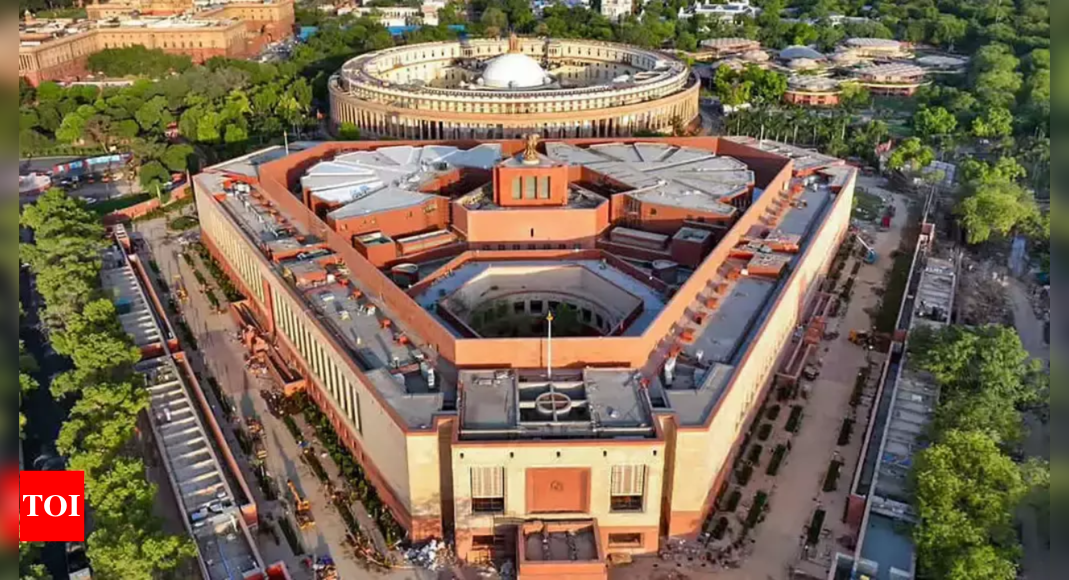
A series of new laws in Louisiana, including a groundbreaking measure that allows judges to impose surgical castration on offenders convicted of certain sex crimes against children, took effect on Thursday. These laws reflect a shift towards conservative policies under the new Republican governor Jeff Landry and a GOP supermajority in the state legislature, according to AP.
Surgical castration as punishment
Louisiana has joined a few other states such as California, Florida, and Texas, which have allowed chemical castration for over 15 years.However, it is now the first state to permit judges to sentence offenders to surgical castration for specific aggravated sex crimes against children under 13. This punishment is discretionary and not automatic.
Chemical castration uses medications to reduce testosterone production and decrease sex drive, while surgical castration involves the removal of testicles or ovaries, a far more invasive procedure. This method is used in countries known for severe criminal sanctions, like the Czech Republic and Nigeria. Supporters of the law, including Democratic senator Regina Barrow who authored it, hope it will deter crimes against children. However, opponents argue it is a form of cruel and unusual punishment.
Louisiana currently has 2,224 inmates serving sentences for such crimes, but the new law applies only to those convicted after August 1.
Restrictions on absentee ballots
New restrictions on absentee ballots have been introduced in Louisiana, a state where mail-in voting has gained popularity. The new legislation limits how many times a person can assist with filling out, signing as a witness, and delivering absentee ballots. Additionally, it makes it easier for officials to reject absentee ballots missing certain details.
Supporters, including the state’s top election official, believe these measures will protect election integrity. Critics argue the laws could create additional hurdles for voters, particularly elderly residents who rely on help from family, neighbours, or caretakers during elections.
Previously Vetoed Anti-LGBTQ Measures
Under the new administration of governor Jeff Landry, previously vetoed bills targeting transgender youth have become law. One new law prohibits teachers from discussing gender identity and sexual orientation in schools, a policy critics refer to as “don’t say gay.” It also bans covering these topics during any extracurricular activities under school jurisdiction.
Police ‘buffer-zone’
A new law now imposes penalties on anyone who knowingly approaches within 25 feet (7.6 meters) of a police officer performing their official duties, after being ordered to stop or retreat. Violators can face up to a $500 fine, up to 60 days in jail, or both.
Critics, including the American Civil Liberties Union of Louisiana, argue that the law could impede the public’s ability to film police and infringe on First Amendment rights. Proponents believe the law will create a buffer zone ensuring officer safety, while still allowing bystanders to film police interactions from a reasonable distance.
Concealed carry of firearms
A Republican-drafted law allowing individuals aged 18 and older to carry a concealed weapon without a permit went into effect across Louisiana on July 4. However, in New Orleans, this legislation became effective on Thursday when a more restrictive city ordinance expired.
“The city is no longer allowed to have stricter laws than the state regarding permitless concealed carrying of a firearm,” said Reese Harper, communications director for the New Orleans police department, as per AP.
Supporters argue that expanding gun rights strengthens the constitutional right to carry firearms. Opponents fear that the lack of required training for carrying a concealed weapon could lead to increased gun violence. According to the National Council of State Legislatures, Louisiana is now the 28th state to implement such legislation.
Surgical castration as punishment
Louisiana has joined a few other states such as California, Florida, and Texas, which have allowed chemical castration for over 15 years.However, it is now the first state to permit judges to sentence offenders to surgical castration for specific aggravated sex crimes against children under 13. This punishment is discretionary and not automatic.
Chemical castration uses medications to reduce testosterone production and decrease sex drive, while surgical castration involves the removal of testicles or ovaries, a far more invasive procedure. This method is used in countries known for severe criminal sanctions, like the Czech Republic and Nigeria. Supporters of the law, including Democratic senator Regina Barrow who authored it, hope it will deter crimes against children. However, opponents argue it is a form of cruel and unusual punishment.
Louisiana currently has 2,224 inmates serving sentences for such crimes, but the new law applies only to those convicted after August 1.
Restrictions on absentee ballots
New restrictions on absentee ballots have been introduced in Louisiana, a state where mail-in voting has gained popularity. The new legislation limits how many times a person can assist with filling out, signing as a witness, and delivering absentee ballots. Additionally, it makes it easier for officials to reject absentee ballots missing certain details.
Supporters, including the state’s top election official, believe these measures will protect election integrity. Critics argue the laws could create additional hurdles for voters, particularly elderly residents who rely on help from family, neighbours, or caretakers during elections.
Previously Vetoed Anti-LGBTQ Measures
Under the new administration of governor Jeff Landry, previously vetoed bills targeting transgender youth have become law. One new law prohibits teachers from discussing gender identity and sexual orientation in schools, a policy critics refer to as “don’t say gay.” It also bans covering these topics during any extracurricular activities under school jurisdiction.
Police ‘buffer-zone’
A new law now imposes penalties on anyone who knowingly approaches within 25 feet (7.6 meters) of a police officer performing their official duties, after being ordered to stop or retreat. Violators can face up to a $500 fine, up to 60 days in jail, or both.
Critics, including the American Civil Liberties Union of Louisiana, argue that the law could impede the public’s ability to film police and infringe on First Amendment rights. Proponents believe the law will create a buffer zone ensuring officer safety, while still allowing bystanders to film police interactions from a reasonable distance.
Concealed carry of firearms
A Republican-drafted law allowing individuals aged 18 and older to carry a concealed weapon without a permit went into effect across Louisiana on July 4. However, in New Orleans, this legislation became effective on Thursday when a more restrictive city ordinance expired.
“The city is no longer allowed to have stricter laws than the state regarding permitless concealed carrying of a firearm,” said Reese Harper, communications director for the New Orleans police department, as per AP.
Supporters argue that expanding gun rights strengthens the constitutional right to carry firearms. Opponents fear that the lack of required training for carrying a concealed weapon could lead to increased gun violence. According to the National Council of State Legislatures, Louisiana is now the 28th state to implement such legislation.









